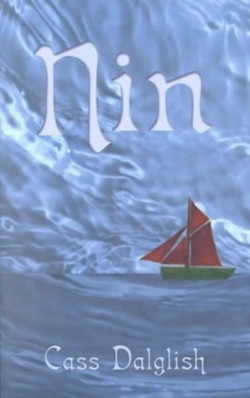
Nin
The literary feminist fable, for all its PC piety, is hardly a foolproof genre. All too often its didactic intentions succumb to humorlessness, and lifeless, allegorical plotting overtakes the flesh and blood characters. Witness no less than Margaret Atwood caught in the thorny path of The Handmaid’s Tale. Luckily, Nin has just enough earnest charm of its convictions to instruct the jaded and entertain the believers.
Nin Creed, a creative writing teacher and poet, living happily in Vermont, was born in Haifa, Israel, to a famed translator of Thomas Aquinas and his wife (a secret scholar of ancient manuscripts) on the day her mother and her grandmother died in a traffic accident. Inheriting her mother’s cryptic notes and papers (as well as her English Catholic turn of mind), Nin accepts a peculiar offer to join a study group of women in a pilgrimage to the Holy Land. This being the modern world, Dalgish grounds her questing heroine with firm skepticism and a lovely sense of the ambience of her birthplace. From the plastic Jesus-shaped bottles sold as holy water containers, to the dusty blur of viewing so many tombs, Nin notes everything in her ever-present notebook.
Also, she has company, accompanied by Christine de Pizan and Marguerite de Porète, two medieval authors who happily cite their own banned works to refute the misogyny of Aquinas, Plato, and Socrates. The latter’s venue? No less than the internet, wisely called the ethernet, where electricity dematerializes matter into etherized non-space, and voices into disembodied floating lines on a screen, all written in the digital poetry of ones and zeros (or marks and ciphers, if you will). While this female Symposium may lack some of the visceral bite of Germaine Greer and Norman Mailer’s debate at New York’s Town Hall meeting once upon a time, its spirited defense of women reclaiming the copyright of their own work against the megalith of male culture makes for lively reading.
Nin is something of a bus(wo)man’s holiday for the author, an associate professor of English at Augsburg College in Minneapolis, where she is currently translating the first signed document in history, a poem written by a Sumerian woman. This same Sumerian (“I understand it’s called Iraq now”) appears at the abandoned gravesite of Nin’s mother, conducting an ad-hoc class in translation of her own cuneiform tablets, archeological fragments Nin stole from a museum. In the tangled strands of oral tradition and written poetry, the human need for story-telling is affirmed: myth and matter are one.
Reviewed by
Leeta Taylor
Disclosure: This article is not an endorsement, but a review. The publisher of this book provided free copies of the book to have their book reviewed by a professional reviewer. No fee was paid by the publisher for this review. Foreword Reviews only recommends books that we love. Foreword Magazine, Inc. is disclosing this in accordance with the Federal Trade Commission’s 16 CFR, Part 255.
